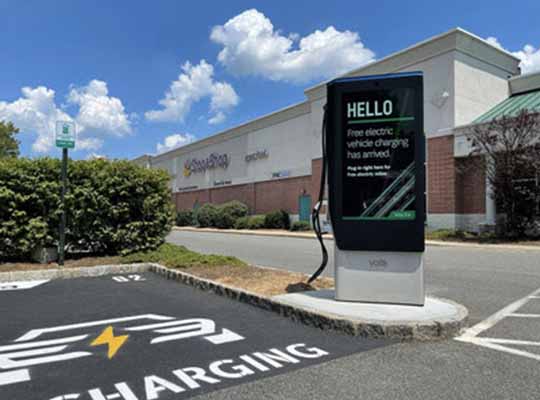NEW YORK – Research Dive has published a report titled “Electric Vehicle Battery Recycling Market by Chemistry (Lead-acid Battery, Lithium-based Battery, Nickel-based Battery, and Others), Application (Electric Cars, Electric Buses, Energy Storage Systems, and Others), and Regional Analysis (North America, Europe, Asia-Pacific, and LAMEA): Global Opportunity Analysis and Industry Forecast, 2021–2028″.
The Global Electric Vehicle Battery Recycling Market is predicted to garner $13,299.6 million in the 2020–2028 timeframe, growing from $1,217.1 million in 2020 at a healthy CAGR of 37.1%.
Electric Vehicle Battery Recycling Market Regional Outlook
The Asia-Pacific regional market recorded a revenue of $598.8 million in 2020, and is further predicted to register a revenue of $6,729.6 million at a CAGR of 37.8% during the forecast period. The rising demand and production of electric vehicles in the Asian countries such as Vietnam, Australia, India, and Japan are fueling the growth of the market in the region during the analysis period.
Get 10% OFF on APAC Electric Vehicle Battery Recycling Market
Key Segments of the Market
The report has divided the market into different segments based on chemistry, application, and regional outlook.
- Based on the chemistry segment, the lithium-based sub-segment is expected to be the most lucrative. The sub-segment generated $541.0 million in 2020 and further expected to raise the highest revenue of $6,099.8 million by the end of 2028. Lithium batteries are known for their high energy efficiency, high-temperature performance, high power-to-weight ratio, and low self-discharge. These are the factors enhancing the growth of the market during the forecast period.
- Based on the application segment, the electric cars sub-segment is expected to be the most profitable. The sub-segment accounted for $470.7 million in 2020 and further expected to generate a revenue of $5,485.1 million at a CAGR of 38.4% during the forecast period. Compared to petrol and diesel cars, electric cars produce zero carbon emissions which make them friendlier to the environment. This is the factor enhancing the growth of the global electric vehicle battery recycling market.
Dynamics of the Market
The greenhouse gas and carbon footprint in the atmosphere has become a serious concern among the climate activists worldwide. People are going for everything ‘green’ and eco-friendly. This factor has increased the demand of electric cars as they don’t pollute the air with carbon emission. The popularity of electric cars leads to the demand of electric batteries and their recycling. This is one of the major factors behind the growth of the market during the forecast period.
The recycling of the batteries involves very complicated processes which requires heavy investment. This is expected to be one of the restraining factor behind the growth of the market.
Moreover, eco-friendly design of the batteries are predicted to create many opportunities for the market in upcoming years.
Top 10 Key Players of the Electric Vehicle Battery Recycling Market
The most significant players of the global electric vehicle battery recycling market include
- Retriev Technologies
- SITRASA
- American Manganese Inc.
- Battery Solutions
- ACCUREC Recycling GmbH
- LI-CYCLE CORP.
- SNAM S.A.S.
- G & P Service
- Umicore
- RECUPYL
These players are working on developing strategies such as product development, merger and acquisition, partnerships and collaborations to sustain the market growth.
For instance, in June 2021, Retriev Technologies, a global leader in battery recycling and management announced the completion of its first volume shipment of recovered battery materials to Marubeni Corp, a Tokyo-based battery manufacturer.
COVID-19 Impact on Electric Vehicle Battery Recycling Market
The global electric vehicle battery recycling market has experienced a drastic decline during the pandemic as restrictions were imposed on almost all the industries to control the spread of the coronavirus. The demand of the electric cars declined because of the restrictions on travel, which drastically affected the global market during the pandemic.













